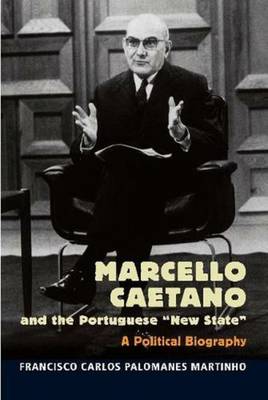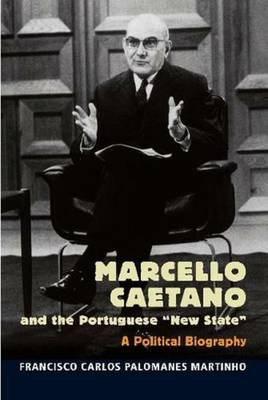
- Afhalen na 1 uur in een winkel met voorraad
- Gratis thuislevering in België vanaf € 30
- Ruim aanbod met 7 miljoen producten
- Afhalen na 1 uur in een winkel met voorraad
- Gratis thuislevering in België vanaf € 30
- Ruim aanbod met 7 miljoen producten
Zoeken
€ 254,45
+ 508 punten
Uitvoering
Omschrijving
Prime Minister Marcello Caetano was the successor of Antonio de Oliveira Salazar. Considered the second most important figure of the Portuguese dictatorship (the Estado Novo regime, 1933-1974), Caetano has generated considerable disagreement amongst scholars with regard to his persona and politics; some consider him more authoritarian than his predecessor, others more liberal. After providing background on his childhood and entry to university, the author explains his growing activism in the Integralismo Lusitano and in the Catholic Church; his monarchist and nationalist ideology. Caetano's decision to support the Salazar Regime coincided with publications in the mainstream media on corporatism, colonialism, European politics and the relationship between Brazil and Portugal. His role in the office of General Secretary of Mocidade Portuguesa (MP), an organization of Portuguese youth similar to the fascist youth organizations in Italy or Germany, was at odds with his neutrality policy in the Second World War. The leadership of Uniao Nacional (the single party of the regime) and the presidency of the Camara Corportiva (a parliament for corporative interests) led to national recognition at a time when the Portuguese regime had to reform its colonial policy. His tensions with other notables of Salazarism resulted in his political demotion and devotion toward the University in the 1960s. As Rector of Lisbon University he supported universities' autonomy, dividing public opinion. Caetano's Presidency (beginning in September 1968) reflected the tense relationship between the government and the liberal wing on the colonial crisis. Ultimately this led to the final crisis of the New State regime; the fragmentation of the armed forces; and the Carnation Revolution on April 25, 1974. During his exile in Brazil between 1974 and 1980 Caetano maintained correspondence with his Portuguese friends. These correspondences, introduced and explained by Francisco Martinho, are of exceptional importance in understanding Portugal's contemporary political history.
Specificaties
Betrokkenen
- Auteur(s):
- Uitgeverij:
Inhoud
- Aantal bladzijden:
- 256
- Taal:
- Engels
- Reeks:
Eigenschappen
- Productcode (EAN):
- 9781845199159
- Verschijningsdatum:
- 1/08/2018
- Uitvoering:
- Hardcover
- Formaat:
- Genaaid
- Afmetingen:
- 157 mm x 236 mm
- Gewicht:
- 589 g

Alleen bij Standaard Boekhandel
+ 508 punten op je klantenkaart van Standaard Boekhandel
Beoordelingen
We publiceren alleen reviews die voldoen aan de voorwaarden voor reviews. Bekijk onze voorwaarden voor reviews.











